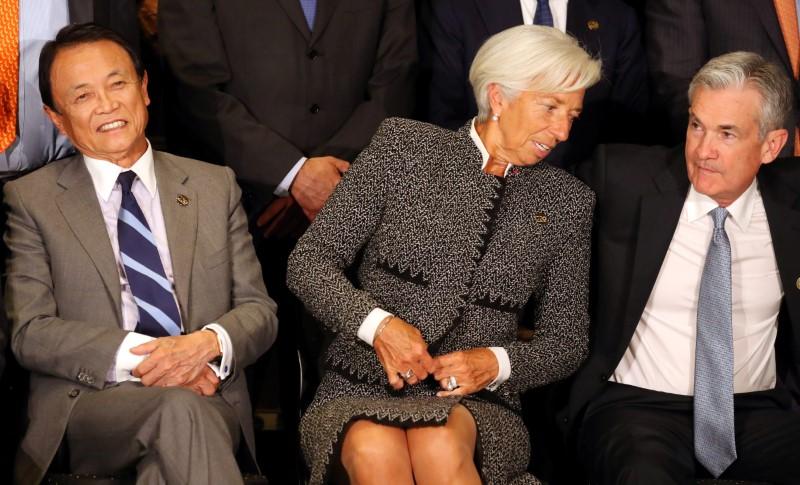BUENOS AIRES —Finance ministers and central bankers from the world’s largest economies said on Sunday that heightened trade and geopolitical tensions risk derailing global growth, and called for greater dialogue, according to the final communique of a G20 meeting.

International Monetary Fund (IMF) Managing Director Christine Lagarde sits alongside Jerome Powell, Chairman of the U.S. Federal Reserve, and Japan's Minister of Finance Taro Aso as they pose for the official photo at the G20 Meeting of Finance Ministers in Buenos Aires, Argentina on July 21, 2018. REUTERS/Marcos Brindicci
|Updated:




